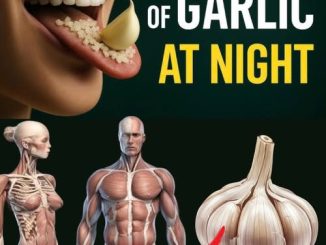
Ginkgo biloba, often simply called ginkgo, is one of the oldest living tree species on Earth—sometimes referred to as a “living fossil.” Native to China and used in traditional medicine for thousands of years, this unique plant has made its way into modern supplements and herbal remedies worldwide, particularly in the United States and Europe.
Today, ginkgo is best known for its potential benefits for brain function, memory, and circulation. Backed by both traditional wisdom and modern scientific inquiry, Ginkgo biloba remains one of the most widely used herbal supplements for supporting mental clarity, cognitive health, and overall well-being.
In this article, we’ll explore what Ginkgo biloba is, how it works, the proven and potential benefits it offers, how to take it safely, and who may benefit most from this fascinating plant.
What is Ginkgo Biloba?
Ginkgo biloba comes from the leaves of the ginkgo tree—a species that has survived unchanged for more than 200 million years. Its fan-shaped leaves are used to create extracts that are rich in antioxidants and active compounds, such as flavonoids and terpenoids.
These compounds are believed to be responsible for many of the plant’s health-promoting effects, particularly in improving blood flow and protecting nerve cells from damage.
1. Enhances Memory and Cognitive Function
Ginkgo is most commonly used to support brain health, especially in older adults experiencing memory decline. Research has shown that ginkgo may help improve cognitive performance, focus, and processing speed—especially in people with age-related cognitive impairments.
How it works:
Ginkgo increases blood flow to the brain, enhances oxygen delivery, and protects nerve cells from oxidative stress. These effects may improve mental alertness and slow down age-related decline in memory and thinking.
Scientific insight:
Some studies have found that ginkgo extract may be effective in improving symptoms of Alzheimer’s disease and other forms of dementia when used consistently. It’s not a cure, but it may help manage symptoms and enhance quality of life.
2. Improves Circulation and Heart Health
One of ginkgo’s key roles is improving blood flow by dilating blood vessels and reducing “stickiness” in platelets. This makes it especially beneficial for people with poor circulation, cold hands and feet, or conditions like peripheral artery disease (PAD).
Benefits include:
- Better oxygen delivery to tissues and organs
- Reduced muscle pain during walking (in people with PAD)
- Potential support for eye health and hearing, thanks to improved microcirculation
Regular use of ginkgo extract may also support overall cardiovascular health by protecting blood vessels from oxidative damage.
3. Powerful Antioxidant Properties
Ginkgo biloba is packed with antioxidants—particularly flavonoids and terpenoids—that help neutralize harmful free radicals in the body. Free radicals contribute to cell aging, inflammation, and the development of chronic diseases like cancer and heart disease.
Antioxidant effects of ginkgo may:
- Reduce inflammation
- Support healthy aging
- Protect nerve and eye cells from degeneration
By combating oxidative stress, ginkgo may also help preserve cognitive function in aging individuals.
4. Supports Eye Health
Because of its effect on blood flow and antioxidant protection, ginkgo may benefit eye conditions like glaucoma and age-related macular degeneration (AMD).
How it helps:
- Enhances circulation to the retina and optic nerve
- May slow the progression of vision loss in some people
Though more research is needed in this area, some small studies have shown promise in using ginkgo to support long-term eye health.
Video : How to improve your memory & general health and wellbeing with ginkgo biloba
5. May Help with Anxiety and Mood
Several studies suggest that ginkgo may reduce symptoms of anxiety—particularly in people with generalized anxiety disorder or age-related stress.
Why it works:
- Ginkgo may regulate stress hormones like cortisol
- Improves blood flow to the brain, enhancing mood and clarity
Ginkgo may be a natural option for people looking to reduce mild anxiety without prescription medications.
6. Supports Brain Recovery After Stroke
Emerging research has explored ginkgo’s role in post-stroke recovery. Some findings suggest it may help improve cognitive function, speech, and memory in stroke survivors when used alongside rehabilitation therapies.
Note:
More research is needed, and ginkgo should not replace standard medical treatment for stroke recovery.
How to Take Ginkgo Biloba
Ginkgo is available in many forms:
- Capsules and tablets
- Liquid extracts or tinctures
- Dried leaf tea (less common but still used)
The most researched and standardized form is EGb 761 extract, which contains 24% flavone glycosides and 6% terpene lactones.
General dosage guidelines:
- For cognitive support: 120–240 mg per day, divided into two doses
- For circulation: 120–160 mg per day
- For anxiety or mood: 80–160 mg per day
Always follow label directions or consult a healthcare provider before beginning supplementation.
Who Should Consider Ginkgo Biloba?
Ginkgo may be especially helpful for:
- Older adults seeking to support memory and mental clarity
- Individuals with mild cognitive impairment or dementia
- People with poor circulation in the hands, feet, or brain
- Those managing anxiety, mood swings, or chronic stress
- People looking for natural antioxidant support
However, not everyone should take ginkgo—there are some precautions to consider.
Possible Side Effects and Precautions
Ginkgo is generally considered safe for most people when used in appropriate doses. However, some individuals may experience mild side effects such as:
- Headache
- Dizziness
- Upset stomach
- Allergic skin reactions
More serious risks include:
- Increased bleeding risk (especially for those on blood thinners like aspirin or warfarin)
- Interaction with anti-seizure medications
- Interference with certain antidepressants
Do not use ginkgo if you:
- Are pregnant or breastfeeding without medical advice
- Have a bleeding disorder
- Are scheduled for surgery soon
- Take medication for blood pressure, seizures, or mood disorders
Always consult your doctor before taking ginkgo—especially if you’re on medication or have a chronic condition.
Video : 5 Possible Benefits of Ginkgo Biloba
Final Thoughts
Ginkgo biloba is more than a botanical curiosity—it’s a time-tested herbal remedy with a wide range of benefits for the brain, heart, and overall well-being. Whether you’re looking to support memory, boost circulation, reduce anxiety, or protect against aging, ginkgo offers a natural solution with centuries of tradition and growing scientific support.
When taken responsibly, Ginkgo biloba can be a powerful ally in your wellness routine. But as with any supplement, it should be used mindfully and in consultation with your healthcare provider.
In a world where mental clarity, stress management, and healthy aging are more important than ever, this ancient tree still has something vital to offer.


